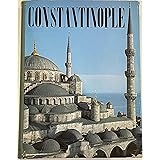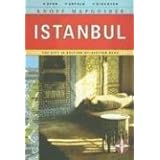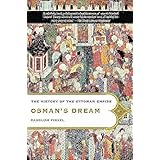The most commonly used concepts and words on Booksonturkey.com can be summarised as follows:
Cultural and Historical Terms: The website provides extensive information about Turkey’s cultural and historical heritage. Frequently mentioned topics include the Ottoman Empire, Turkish cultural heritage, the remains of various civilisations and historical monuments.
Religion and Sufism: The site provides detailed information about Indian lodges and other religious buildings during the Ottoman period. Sufism and religious life are also frequently covered.
Tourism and Travel: Travel guides and travel tips about Istanbul and other touristic regions also occupy an important place. There are many guides and recommendations especially about Istanbul.
Turkish Language and Literature: Articles on Turkish language and literature, information about famous Turkish writers and their works are among the topics frequently covered on the website. The importance of literature and language is emphasised.
Archaeology: Turkey’s archaeological richness and studies in this field are among the prominent contents of the site. In this context, information about archaeological excavations and finds in different regions of Anatolia is provided.
In the light of this information, the website covers Turkey’s cultural, historical, religious and touristic aspects from a broad perspective. For more detailed information, please visit the website itself.
Books on Turkey is a comprehensive platform that offers book recommendations and content on various topics about Turkey. When I look at the content of the site, I see that the existing articles cover a wide range of topics such as important works of Turkish literature, Turkey’s historical and cultural richness, and the works of Mustafa Kemal Atatürk.
When adding new articles, you might consider focussing on the following topics:
Contemporary Turkish Writers and Their Works: You can add introductions and reviews of new and popular works by leading names in contemporary Turkish literature such as Orhan Pamuk, Elif Şafak, Yaşar Kemal.
Forgotten Stories of Turkish History: You can prepare in-depth articles on little-known aspects of the Ottoman Empire, the events of the Republican era and the development process of modern Turkey.
Leading Names of Turkish Culture and Art: You can add detailed articles about the lives, works and contributions to literature of important writers and poets such as Nazım Hikmet and Sabahattin Ali.
Book Recommendations for Turkish Language Learners: For foreigners learning Turkish, you can create content about book recommendations and resources that are suitable for their language level and will facilitate learning.
Travel and Travel Articles: You can add guide articles about the introduction of various regions of Turkey, historical and touristic places. These articles can be interesting for both Turkish readers and foreign tourists who want to visit Turkey.
Turkish Culinary Culture: You can add articles introducing the richness of Turkish cuisine, traditional recipes and the history of these dishes.
These topics can diversify the content of the site and reach a wider audience. You can also access the details of the existing content and the book recommendations offered by the site at Books on Turkey.
The Books on Turkey site offers content in both English and Turkish, with a variety of book recommendations, reviews and articles in both languages. While there is no direct analysis of which language is more popular, I can say that the site offers a wealth of content in both languages and provides valuable information for readers in both languages.
However, based on my general observations, I think that English-language content has the potential to reach a wider audience and may be of more interest to international readers. In particular, English-language content such as introductory guides to Turkey, historical and cultural information, and introductions to world-renowned works of Turkish literature may be of interest to foreign readers. For example, articles in English about the works of authors such as Elif Şafak and Orhan Pamuk and Turkey’s historical and cultural richness could be very attractive to international readers.
On the other hand, Turkish content is also of great value, especially for local readers and foreigners learning Turkish. Classic works of Turkish literature, in-depth analyses of Turkey’s history and culture, and content aimed at improving Turkish language skills may be of interest to Turkish-speaking readers.
Therefore, having a balanced mix of both English and Turkish content on your site can help you reach different audiences and expand your site’s reach. If you are considering producing more content in a particular language, you can create a strategy by considering the demographics and interests of your target audience.
Suggestions
English Content:
- Guides to historical and cultural sites in Turkey.
- Introductions and reviews of modern Turkish literature and writers.
- Turkish cuisine and traditional recipes.
- Travel tips and recommendations for foreigners planning to visit Turkey.
Turkish Content:
- Detailed analyses of classic works of Turkish literature and authors.
- In-depth articles on Turkish history and culture.
- Language development resources and stories for Turkish language learners.
- Introductions and reviews of current Turkish authors and their works.
- In this way, you can reach a wide audience by offering interesting and valuable content in both languages.






















